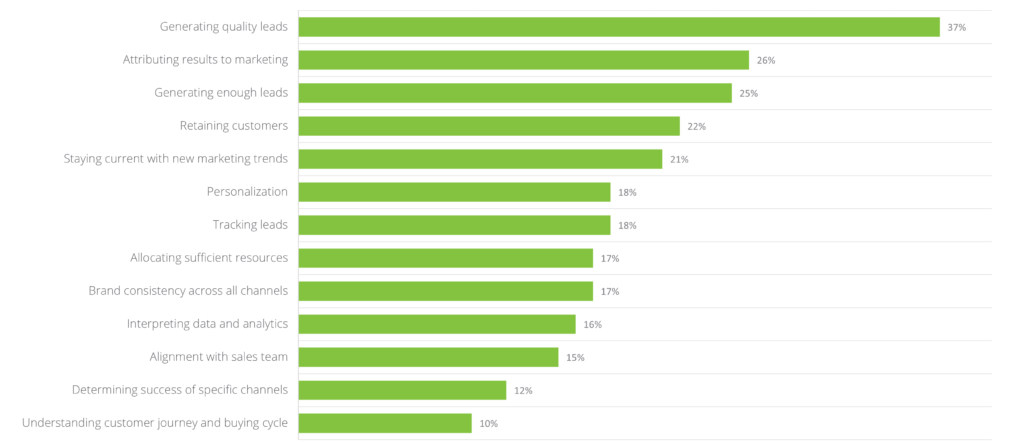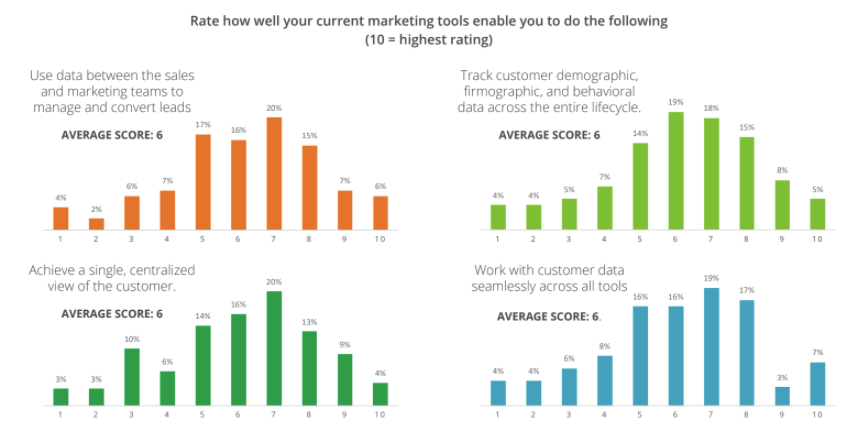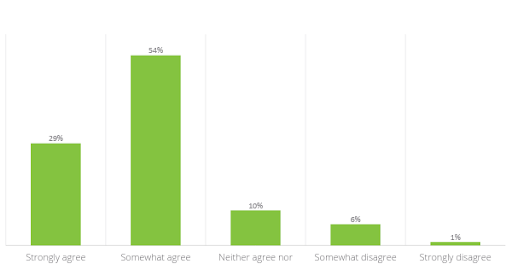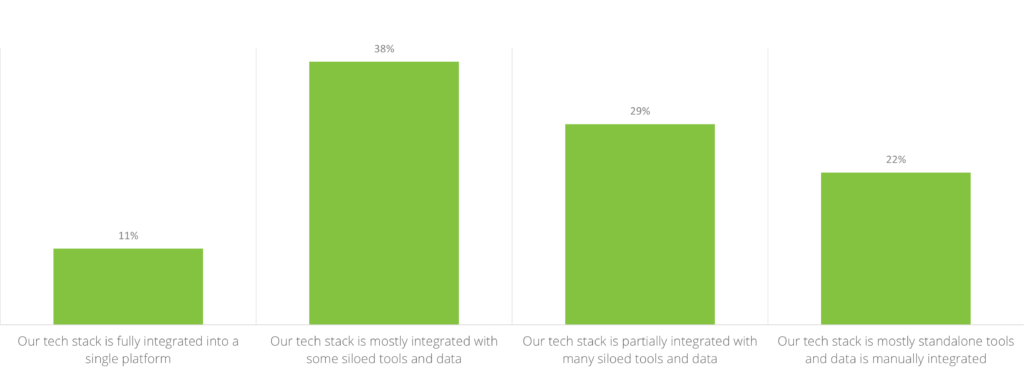The backbone of digital transformation is the technology that we use. Technology to find customers, attract customers, engage customers, and make a sale. Everything that happens in marketing and sales includes technology to help us be more efficient and effective in what we do.
Today, marketers have access to endless streams of data and countless tools specifically created to enable business development. For marketing professionals, the evolving landscape isn’t always an easy one to navigate. Mountains of data can be helpful if used correctly, or it can create a disjointed picture of the customer, misaligned goals, and a rocky path to revenue growth.
How are marketers using technology to transform their marketing programs and pave the way to better results?
The State of MarTech, a new research study by Ascend2 and SharpSpring, surveyed 187 marketing professionals to find out how they are using technology to get better results.
Here are a few of the findings:
Finding #1: Generating truly relevant leads and attribution are the most commonly reported challenges faced by marketers when it comes to the success of their digital strategy.
The study also found that 76% of marketers feel that they are missing opportunities for revenue growth as a result of challenges like lead quality and marketing attribution.

Digital Transformation Tip: Over one-quarter of marketers are having difficulty attributing campaign results to marketing efforts. Attribution can transform a good marketing strategy into a game-changer for your business by letting you know which campaigns drive conversions, so you can invest in the efforts that work best. This is also the key to identifying your quality leads.
Marketing technology should allow you to set up a multi-touch attribution model in a few simple steps.
- Identify the attribution model you want to follow (first-touch, last-touch, linear, U-shaped, etc.).
- Track your campaigns.
- Set up your conversion goals.
- Build custom reports with multi-touch attribution.
The research finds that too many technology tools are not always better. 44% of marketing teams are using 4 or more tools to execute their strategy but are still facing major challenges. To overcome challenges like attribution and quality leads, don’t look for more tools but instead look for tools that have built-in features, like attribution tracking.
Finding #2: It is time for marketing professionals to fix the data problem.
Marketers aren’t thrilled with the way their tools and technology are working to support their strategy. Marketing tools received an average ranking of a 6 out of 10 (that’s almost a failing grade!). Research reveals that the technology is capable of fixing the problem but a strategic and systematic approach is necessary. Here is a closer look.

Digital Transformation Tip: 59% of marketers feel that they DO NOT have the data they need to feel confident about which marketing campaigns are working and which are not.
By leveraging behavioral, demographic, and firmographic information, you can give customers content that’s suited to their interests and activities – without lifting a finger. And since every customer interaction provides additional insight, your brand experience becomes increasingly relevant across channels. Visitors feel understood, which ultimately incentivizes them to return.
Getting your sales and marketing automation platform in sync is the key to having a score that is 8, 9, or 10 (best-in-class). Consolidating your sales and marketing platforms makes it easier to eliminate data silos, clean your data, and make data-driven decisions.
Finding #3: The Solution – Consolidate and integrate tools and technologies.
83% of marketers agree that consolidating tools in their marketing and sales technology stacks would increase productivity and efficiency.

The report provides a comprehensive list of tools used by the marketing team and the sales team. Here are the top four tools for each.


Digital Transformation Tip: Running with a lean technology stack can reduce operational silos and enable better end-to-end visibility of prospects and customers. Consolidating tools can also decrease the time it takes to solve issues, significantly reduce costs, simplify forecasting and tracking KPIs, and streamline the training of staff members.
Finding #4: Current status of integration of marketing and sales technologies.
Consolidating tools alone might help with overall efficiency, but integrating technologies (ideally into a single platform) will centralize customer data and drive measurable results. 51% of marketers are only partially integrated or use manual processes between tools.

Digital Transformation Tip: A deep dive into the research found that the most successful marketers are 118% more likely to be fully integrated. This group develops a plan to align marketing and sales, and the integration of technology allows the plan to become a reality.
Conclusion
Adopting an all-in-one revenue growth platform is the next phase of digital transformation. The ability to use technology to align marketing and sales so you can optimize your entire funnel, with a holistic view of channels, campaigns, prospects, and customers.
McKinsey calls it “full-funnel marketing” and says that one key benefit in “Linking KPIs between channels and stages of the funnel to actual business results, such as conversions or leads, allows companies to better understand the real impact of their marketing and then create messages that will elicit the best responses.”
For more research on digital transformation, download the 18-page State of MarTech report.
The post 4 Insights on Digital Transformation and The State of MarTech [ Research ] appeared first on Content Marketing Consulting and Social Media Strategy.

![You are currently viewing 4 Insights on Digital Transformation and The State of MarTech [ Research ]](https://www.dimaservices.agency/wp-content/uploads/2021/09/4-Insights-on-Digital-Transformation-and-The-State-of-MarTech-Research-1024x512-1.png)


